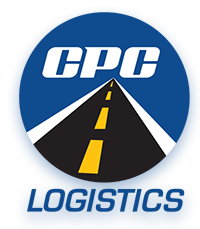

Highway to Health: Anemia
Anemia is a condition in which you lack enough healthy red blood cells to carry adequate oxygen to your body’s tissues. This lack of oxygen can make you feel tired or weak and can also cause shortness of breath, headaches and dizziness. Anemia can be due to a condition present at birth (congenital) or to a condition you develop (acquired).

There are many different types of anemia, including:
- Iron deficiency anemia: This develops when you don’t have enough iron in the body. It can be due to traumatic blood loss, heavy menstruation, overuse of aspirin or certain diseases like inflammatory bowel disease or kidney disease.
- Vitamin B12 deficiency anemia: This condition may arise when you don’t consume enough vitamin B12 to make healthy red blood cells. Some of the best sources of B12 are meat and dairy, so vegetarians and vegans may be at higher risk.
- Hemolytic anemia: This occurs when your red blood cells are destroyed faster than they can be replaced. This can be due to infection, bone marrow failure, or inherited conditions like sickle cell disease and thalassemia.
Signs and symptoms of anemia may include:
- Extreme fatigue.
- Weakness.
- Headache, dizziness or lightheadedness.
- Unusual cravings for non-nutritive substances, such as ice, dirt or starch.
- Poor appetite, especially in infants and children with iron deficiency anemia.
- Inflammation or soreness of your tongue.
- Pale skin.
- Cold hands and feet.
Many types of anemia can’t be prevented. But you can avoid iron deficiency anemia and vitamin deficiency anemias by eating a diet that includes a variety of vitamins and minerals, including:
- Iron: Iron-rich foods include beef and other meats, beans, lentils, iron-fortified cereals, dark green leafy vegetables and dried fruit.
- Folate: This nutrient and its synthetic form, folic acid, can be found in fruits and fruit juices, dark green leafy vegetables, green peas, kidney beans, peanuts, and enriched grain products such as bread, cereal, pasta and rice.
- Vitamin B12: Foods rich in vitamin B12 include meat, dairy products and fortified cereal and soy products.
- Vitamin C: Foods rich in vitamin C include citrus fruits and juices, peppers, broccoli, tomatoes, melons and strawberries. These also help increase iron absorption.
When to see a doctor
If you or your child develops signs and symptoms that suggest anemia, please see your doctor. Anemia isn’t something to self-diagnose or treat. Some people may recommend an iron supplement, but you should discuss this with your doctor first. Different types of anemia require different treatments, and not all types will improve with iron. Overloading the body with iron can be dangerous because excess iron accumulation can damage your liver and cause other complications. It’s best to see your doctor for a diagnosis rather than take iron supplements on your own.
